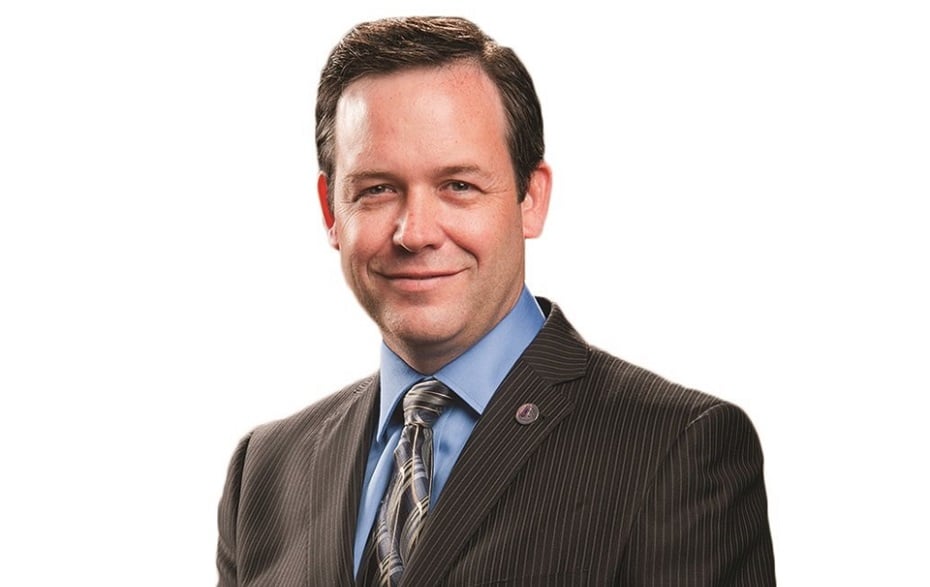
Proposed changes to the Law Society Act would raise maximum fines for lawyers to $100,000 from $10,000

An expansive list of changes to the justice system will require more accountability from lawyers — but will also hopefully ease some regulatory burden, says Ontario Attorney General Doug Downey.
Proposed changes to the Law Society Act would raise maximum fines for lawyers to $100,000 from $10,000 and would add to the circumstances in which a lawyer or paralegal’s license can be summarily revoked.
“Things like increasing the fine limits are really just catching up — as we've increased Small Claims, and we've increased simplified procedure, it made sense to increase the penalty range,” he says. “Really, it's about accountability and for professional misconduct and ethical breaches, which is, again, fairly rare, but the Law Society needs the tools to regulate.”
When bill 161— which impacts about 20 different acts — was announced earlier this week, law society leader Malcolm Mercer praised its overarching efforts to protect the public.
Perhaps the biggest change moves the law society toward long-awaited entity-based regulation by defining a law “firm” within the act (as a sole proprietorship, professional corporation, association of licensed in a “joint arrangement,” an ordinary or limited liability partnership or any other “entity” specified by by-laws).
“The goal was with regulating law firms is to reduce red tape. As individual lawyers, doing your filings can be repetitive within a firm. And I think there's an opportunity here to relieve burden on firms in doing the filing for the group,” he says.
The new Law Society Act, if adopted, would allow the LSO to create a register of firms, and allows for a system where a firm designates a representative to work with the regulator to “review conduct of the firm.” It also allows for the law society to publish a firm’s “failure to comply” in specific circumstances.
Other details in the bill expand on how the law society could treat solicitor-client privilege during audits, and when law society auditors can request information from current and former law office staff.
The law society is one of many organizations touched by Downey’s proposal, as is Legal Aid Ontario. Although critics have questioned why Downey would lower the number of LSO-approved board members or loosen requirements for LAO to provide certain services, Downey says there has been extensive consultation on the legal aid changes. The budget — which will remain unchanged in 2020 and significantly lower than 2018 — was deemed sustainable through conversations with LAO itself and lawyers within the system, he says.
Legal aid may have less funding, but, Downey says, the new rules would give them more “flexibility” compared to “prescriptive” existing rules that constrain legal aid to a “list” of practice areas. There has also been an evolution of the interplay of the LSO and LAO in the time since the LSO controlled legal aid in the 90s, he added.
“We want to make sure that there's a healthy balance between modernizing and being accountable to the users,” he says.
Outside of the LSO and LAO Crown liability and civil forfeiture were two areas addressed deeply in the bill before the legislature.
The addition to the Crown Liability and Proceedings Act sets out timelines for steps like serving a notice of claim and abandoning an application.
“The main clarification in Crown liability act is that the limitation period is not going to run while the plaintiff is seeking leave,” he says “I think there was some discussion about whether the limitation period did run or not, so we just want to be really clear and say it does not run during that period.”
The new rules would add the option for administrative forfeiture on top of the existing process. Downey says there is a “rigorous” notice procedure to alert lawyers and their clients with seized assets who might want to contest the seizure.
“We're not changing how it currently works, in terms of getting court orders for contested forfeitures. But what it does is it allows when the police seize an asset to have it forfeited if it's uncontested,” he says. “It saves court time., it saves police time. . . . and it keeps the proceeds of crime with the hands of criminals and help support the victims.”
Other proposals would provide more rules about cy pres distributions, third-party financing of class actions, lawyers’ costs and fees during class actions, and disclosure of jury panels to lawyers and litigants. The bill also prescribes that judges who are removed from office following complaints “are not entitled to compensation for any part of the legal costs” incurred by them during the complaint.
Downey says he is interested to hear feedback from lawyers on two parts of the bill, in particular: document verification and estates. Going forward, the government would work on paving the way for digital document verification, as well as creating a system to deal with small estates (for now, that means less than $50,000, he says.)
“We really do want to hear from the profession, on the areas that it makes the most sense,” he says.
One change that was not included in the 80-plus pages of bill 161 was a previously discussed “long-list” system of judicial appointments. Any change to how judges are selected is now unlikely to come before February.
“I started the conversation on that this fall and expect to continue to have that conversation in the new year,” he says.